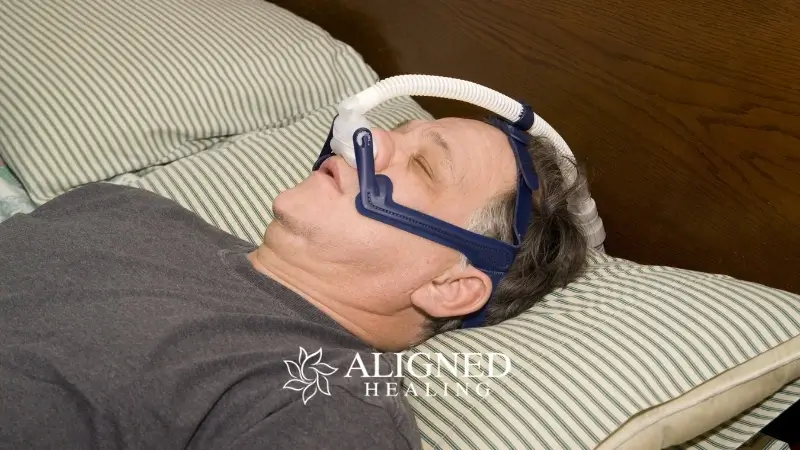Sleep is one of the most important pillars of health, yet millions of people struggle to get quality rest each night. One of the most common, yet underdiagnosed, causes of poor sleep is sleep apnea. Sleep apnea is a condition that disrupts breathing during sleep and leads to fragmented, unrestful nights. But what many don’t realize is that a visit to the dentist might be the first step toward better sleep.
Welcome to the world of airway dentistry: a growing field that focuses on the relationship between oral health, airway function, and sleep quality. If you or someone you love snores, wakes up feeling exhausted, or has been diagnosed with sleep apnea, airway dentistry may offer real, lasting relief.
Understanding Sleep Apnea
Sleep apnea is a sleep disorder where breathing repeatedly stops and starts during the night. The most common form, obstructive sleep apnea (OSA), occurs when the muscles in the back of the throat relax too much. This causes a temporary blockage of the airway. These interruptions can happen dozens or even hundreds of times per night, jolting the body out of deep sleep and depriving the body of needed oxygen.
The effects of sleep apnea go beyond feeling tired. It’s been linked to serious health conditions like high blood pressure, heart disease, diabetes, and depression. Unfortunately, many people don’t even know they have it. They may chalk up symptoms like fatigue, irritability, or morning headaches to a busy lifestyle—never realizing their airway is the issue.
The Airway-Sleep Connection
Your airway plays a crucial role in how well you sleep. A narrow or obstructed airway can lead to poor oxygen flow, triggering micro-arousals (tiny sleep interruptions) throughout the night. Over time, this chronic sleep disturbance affects physical, mental, and emotional well-being.
That’s where airway dentistry comes in.
Airway dentists are trained to look beyond teeth and gums. They evaluate the structure of your jaw, tongue, throat, and nasal passages—all of which impact airflow. Unlike traditional approaches that may focus solely on managing symptoms with a CPAP machine, airway dentistry aims to identify and address the root cause of the obstruction.
Innovative Dental Solutions for Sleep Apnea
So how exactly can a dentist help with sleep apnea? Here are a few cutting-edge solutions airway dentists use to improve breathing and sleep:
- Oral Appliance Therapy (OAT)
Oral appliances are custom-made devices that reposition the jaw and tongue to keep the airway open during sleep. These devices are comfortable, easy to wear, and a great alternative for those who can’t tolerate a CPAP machine.
For mild to moderate sleep apnea, oral appliance therapy can be life-changing. It’s non-invasive, portable, and doesn’t require electricity or masks—making it especially appealing for travelers or those seeking a simpler solution.
- Jaw Development and Orthopedic Treatments
In some cases, a narrow upper jaw or recessed lower jaw can contribute to airway obstruction. Airway dentists may use orthopedic appliances to gradually widen the jaw or reposition it for better airway support. These treatments are particularly effective in children and young adults, but adults can benefit too.
Expanding the airway structure can provide long-term improvement in breathing and sleep quality without surgery.
- Myofunctional Therapy
This is a form of physical therapy for the muscles of the face, tongue, and mouth. Myofunctional therapy helps retrain these muscles to support better breathing habits, posture, and oral rest position (where your tongue and lips rest when you’re not speaking or eating).
Combined with dental treatment, it can enhance airway function and reduce symptoms of sleep-disordered breathing.
- Tongue-Tie and Frenum Release (Frenectomy)
Restricted tongue movement (often due to a tongue-tie) can contribute to poor tongue posture, leading to airway issues. Releasing the tight tissue that anchors the tongue allows for better function and can support healthy breathing and swallowing patterns, especially in children.
A Team Approach to Better Sleep
Airway dentistry doesn’t replace medical treatment—it complements it. A collaborative approach between dentists, sleep physicians, ENTs, and other healthcare providers ensures a comprehensive evaluation and personalized care plan.
If you’ve already been diagnosed with sleep apnea and use a CPAP, airway dentistry may help reduce your dependence on it—or eliminate the need altogether. And if you suspect you have sleep apnea but haven’t been tested, a dentist trained in airway-focused care can guide you toward the right assessments.
Signs You Might Benefit from Airway Dentistry
You don’t have to be diagnosed with sleep apnea to benefit from airway dentistry. Here are a few signs to look out for:
- Loud or frequent snoring
- Waking up gasping or choking
- Daytime fatigue, even after a full night’s sleep
- Morning headaches
- Dry mouth or sore throat upon waking
- Teeth grinding (bruxism)
- Crowded teeth or narrow palate
- History of mouth breathing
If any of these resonate with you, it might be time to explore an airway evaluation with your dentist.
A Breath of Fresh Air
Quality sleep is not a luxury—it’s a necessity for optimal health. If sleep apnea or airway issues are robbing you of rest, know that you have more options than you might think. Airway dentistry offers a fresh, holistic approach that goes beyond managing symptoms to supporting true healing.
By addressing the structure and function of the airway, you can unlock the restful, restorative sleep your body needs—and wake up to a brighter, healthier life. We welcome you to contact us today at Aligned Healing to learn more and schedule an appointment.






